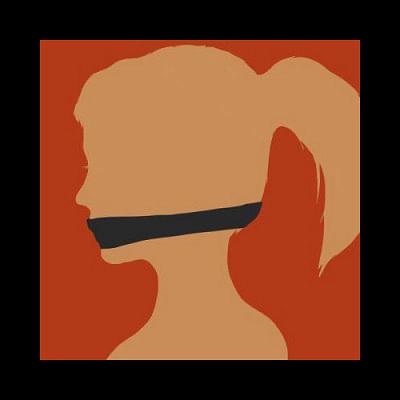Won't we ever listen?

Aktar Jahan and I were students of the same department in Dhaka University, and then colleagues of the same department in Rajshahi University. I left Rajshahi University in 2007. I had a good rapport with Aktar and her husband, who also belonged to the same department, and had presumed that Aktar was happy with him. Swaad was their only child. Apart from being a good teacher, she was very much a family person.
Around 2011, I heard that Aktar and her husband had separated. I did not question the decision as I respected them both. There was nothing unusual about two people deciding to go their separate ways for personal reasons. Never in my wildest imagination did I think that Aktar would take her own life and that I would be writing about it.
When I first heard of the incident, I was appalled. Why would Aktar do something like this? She was an Associate Professor of a reputed public university with a good family background. She had a son. But after putting aside my disbelief, I noticed that not only the news of Aktar's sudden demise, but also some very sad accounts of her life narrated by her students, colleagues and close friends flooded the social media. I must admit that I did not know the recent developments in her life in detail. But I read her suicide note that was published in many mainstream newspapers the next day, and I think it says a lot.
Without knowing the extent of what she had been through, as described by her friends, colleagues and students after her death, one may understand from the short note that she had become exhausted - mentally and physically. The reasons are quite obvious. After an unhappy end to a marriage of many years, she only got custody for her child around May this year. She was also anxious about the safety of her child's life, as mentioned in the note. Her son in a Facebook post confirmed that his father had indeed threatened his mother and him in two separate instances.
She requested that her body be given away to the RMC Hospital instead of being taken to her family in Dhaka, and it this final request that I find most depressing. It shows just how much she had withdrawn herself from the world!
She was brave, actually. Even after her divorce and her ex-husband's remarriage, she continued working in the same department as him. I saluted Aktar Jahan when I saw her picture with her ex-husband and his new wife taken at a departmental event. It seemed like she had managed to get over the trauma of separation and divorce quite well. But in truth, there is always much more in store for a divorced woman in our society.
From what her close friends have disclosed, she allegedly could hardly ever see her child despite staying on the same campus. Our laws still do not allow a mother to get the custody of her child after a certain age. She passed several years without being able to see her son whenever she wanted. Her son's Facebook status gives clear evidence of that. I do not know when our laws will become more humane. Many women in our country are forced to stay in abusive relationships just for the children's sake. They suffer even more after divorce over the custody issue. Women activists have been demanding a mother's right to have custody of her child for a long time but little has changed.
When Aktar started living alone, she perhaps needed proper psychological counselling. But our society and even education institutes are not equipped with such kind of facilities. People should have access to psychological counselling to get over of any kind of trauma, but in our culture, any sort of psychological counselling is nothing but 'treatment for madness'. We visit doctors for the slightest physical discomfort, but no matter how serious the state of our mental health, we hardly pay any attention to it. Getting over a relationship is not always easy, especially if there is a child involved. Some professional help and some empathy are all that a person needs in such a situation. What hurts me the most is the description of her suicide. She made sure her suicide attempt was successful. I cannot even imagine what her mental state must have been that forced such a doting mother, who had finally got the custody of her child, to take this decision. I only wish that she had continued her struggle a little longer.
The problem is that when a woman becomes emotionally vulnerable, she hardly gets any support from her friends, her family, least of all, her society. Aktar Jahan spoke only to a few close friends regarding her situation, of which we know now. But confiding in them did not help her overcome the situation. Legal support, mental support and a strong voice against whatever injustice she had to put up with, could have helped her from meeting such an untimely end. Unfortunately, in the absence of any such support, she perhaps stopped trying to survive on her own.
In the beginning, I was swept away by a kind of sentimental blow of her 'foolishness': why did she do such a thing, and why had she even stayed in such an unhappy marriage for so long in the first place, as described by Anthropology professor of Jagannath University, Shaolee Mahbub (Aktar Jahan Ja Bolechhilen, Women Chapter, September 10, 2016) and Rifat Fatima (Moharaja Tomare Selam, Women Chapter, September 12, 2016). But then, with the passage of time, I realised that not everyone is able to take the same kind of burden for long; especially, if the harassment continues after divorce, which is often the case. Well, those who can survive such storms are the winners. But won't there be a safety net for those who eventually become emotionally vulnerable in such situations? Thus, I hope the repeated allegations of harassment by her ex-husband are brought under investigation.
Also, we need to consider other provocations which we often ignore. For instance, why do conflicts within a marriage end up, in many cases, with the women feeling like there is no other escape except taking their own lives. When such incidents follow a pattern, I would rather call them structured killings.
If we carefully consider the suicide note, we can certainly see that it also tells a lot about other women who go through the same process: physical/mental pressure, anxiety for children's safety, and the feeling of alienation. Even economic independence cannot ensure their mental and physical safety. Families want their daughters to remain married, no matter how abusive a relationship they are in. Society ignores them, passing off their woes as trifling personal matters.
I see my student Sutapa's suicide, Shahjalal University professor Fahmida's suicide, Professor Rumana Manjur's gauged out eyes, and Rajshahi University student Sifat's suicide, reflected in Aktar's short note. Suicide has never only been an individual effort. Many reasons at the personal-family-community-society levels lead one to such drastic action. Our apathy is the biggest ally to these structured killings. Now is the time, through Aktar Jahan's note, to listen to the voices of those who have had to resort to suicide. If we want to stop the next one.
Won't we listen?
The writer is Professor, Department of Mass Communication and Journalism, University of Dhaka.

 For all latest news, follow The Daily Star's Google News channel.
For all latest news, follow The Daily Star's Google News channel. 



Comments